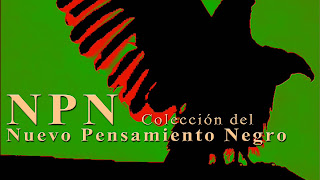In
any case, the difference refers to the political precariousness of black people,
determining its priorities; more serious in the case of women, even without
cases like that of Phillis Wheatley in United States, who had the patronage of
her masters. In Cuba, on the other hand, social freedom did not make this type
of patronage possible, which alleviated the harshness of the environment;
which, though less rude, was still beyond the strength of individuals aspiring
to such a specialty as that of poetry. With men it is different, because its
projection —and connections— is always political, allowing for other
developments; contrary to women, who must leap from the domestic, when this —and
not poetry— was the priority, as a primary need.
However,
history is not an immobile, universal and abstract phenomenon, to be looked at
with absolute parameters; on the contrary, as a reality, it occurs in the
concrete phenomena in which it is realized, punctual in its exceptionality. It
was then a matter of time before some pioneer would put her pike of blackness
in the Flanders of Cuban literature; a development traumatized by the triumph
of the revolution, with what that meant institutionally and ontologically.
In
another circumstance, Herrera would have renewed the national spectrum with her
sentimental existentialism; in her actual circumstance, she was neutralized by
her low political profile, persisting in that existentialism. Perhaps this made
possible her special sensitivity to African openness, dubious outside of the
country's political manipulations; and yet this allowed her to reconnect with a
transcendence, in which identity transcends the problems of childhood.
Recognized
in all its splendour, her poetry is nevertheless dragged down by the weight of
mediocre criticism; that, resorting to the commonplace, still tries to put
together a political discourse where there is only personality; It is also
about overexploiting that other commonplace of motherhood, more complex and
dramatic than idyllic in her. Herrera is, in any case, an enigmatic and complex
figure in every sense, from thematic to strictly literary existentialism;
because her poetry does not derive from the symbolism with which modernity
culminated, in its critical rationalization of romanticism; but matures
directly from this romanticism, probably thanks to her formation, unique and
sufficient as her self-taught.




No comments:
Post a Comment